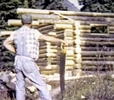- Welcome to Cook'd and Bomb'd.
-
 Jimmy Carr's new Netflix special....
by Rolf Lundgren
Jimmy Carr's new Netflix special....
by Rolf Lundgren
[Today at 12:30:17 AM] -
 What Non-New Films Have You...
by Tarquin
What Non-New Films Have You...
by Tarquin
[Today at 12:28:14 AM] -
 Is Cancel Culture Over?
by Captain Z
Is Cancel Culture Over?
by Captain Z
[Today at 12:26:37 AM] -
 Have never felt so shite....
by Cold Meat Platter
Have never felt so shite....
by Cold Meat Platter
[Today at 12:24:07 AM] -
 The Last CaB post that made...
by Glebe
The Last CaB post that made...
by Glebe
[Today at 12:21:15 AM] -
 Swimming
by Underturd
Swimming
by Underturd
[Today at 12:15:18 AM] -
 What makes Jack Nicholson...
by Tarquin
What makes Jack Nicholson...
by Tarquin
[Today at 12:11:37 AM] -
 Snooker 23/24
by druss
Snooker 23/24
by druss
[Today at 12:08:17 AM] -
Doctor Who - Series 14, part... by McDead
[Today at 12:07:49 AM] -
 Football Thread 23-24: Part...
by phes
Football Thread 23-24: Part...
by phes
[Today at 12:06:12 AM]
Members
 Total Members: 17,827
Total Members: 17,827 Latest: skinnylike
Latest: skinnylike
Stats
 Total Posts: 5,583,329
Total Posts: 5,583,329 Total Topics: 106,739
Total Topics: 106,739 Online Today: 752
Online Today: 752 Online Ever: 3,311
Online Ever: 3,311- (July 08, 2021, 03:14:41 AM)
Users Online
 Users: 72
Users: 72 Guests: 567
Guests: 567 Total: 639
Total: 639 waste of chops
waste of chops non capisco
non capisco Tiggles
Tiggles Kelvin
Kelvin Mobius
Mobius Mortimer
Mortimer Rolf Lundgren
Rolf Lundgren druss
druss DelurkedToHelp
DelurkedToHelp Cold Meat Platter
Cold Meat Platter Pixel Pusher
Pixel Pusher McDead
McDead Bronzy
Bronzy David Pielingtonburygrot
David Pielingtonburygrot SteveDave
SteveDave another Mr. Lizard
another Mr. Lizard Midas
Midas Memorex MP3
Memorex MP3 Urinal Cake
Urinal Cake FredNurke
FredNurke DocDaneeka
DocDaneeka Theoretical Dentist
Theoretical Dentist Underturd
Underturd Bob Loblaw
Bob Loblaw phes
phes MrMealDeal
MrMealDeal Chairman Yang
Chairman Yang Oosp
Oosp hermitical
hermitical crankshaft
crankshaft Egyptian Feast
Egyptian Feast Even Number
Even Number C_Larence
C_Larence Golden E. Pump
Golden E. Pump CptPorkDouglas
CptPorkDouglas matjam13
matjam13 Petey Pate
Petey Pate Severai
Severai Ruben Remus
Ruben Remus Juan K Perros
Juan K Perros Bum Flaps
Bum Flaps Butchers Blind
Butchers Blind Dex Sawash
Dex Sawash Funcrusher
Funcrusher SonicMidwife
SonicMidwife Starlit
Starlit Poobum
Poobum Harpo Speaks
Harpo Speaks PaulTMA
PaulTMA KindaSorta
KindaSorta mrsleepy321
mrsleepy321 JuggaloBoi420
JuggaloBoi420 chocky909
chocky909 Elderly Sumo Prophecy
Elderly Sumo Prophecy cakeinmilk
cakeinmilk Peabo Bryson Is Not Dead
Peabo Bryson Is Not Dead Lordofthefiles
Lordofthefiles
User actions

